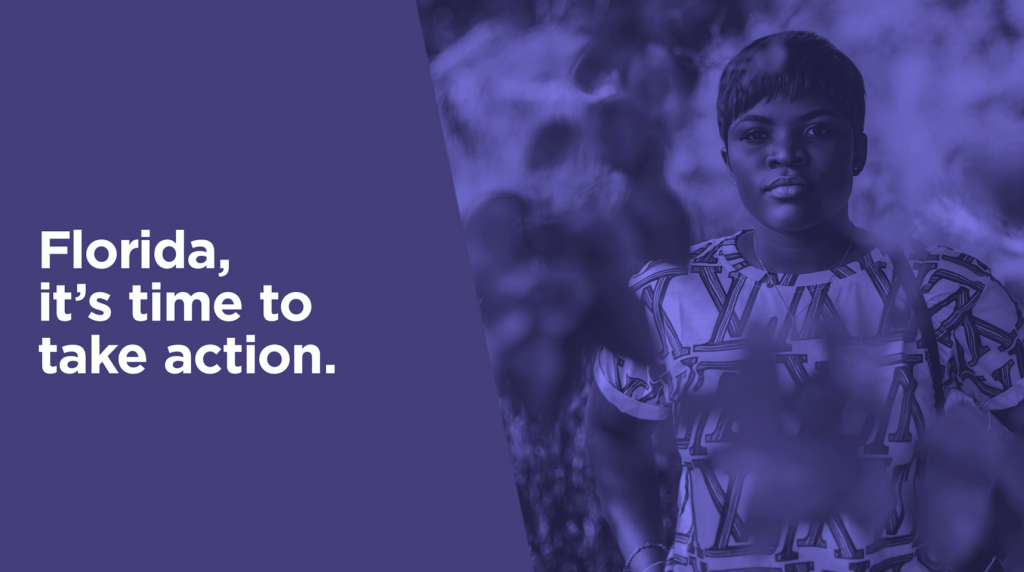Florida Officials Must Protect Voter Health and Right to Vote Amid Pandemic
By Brad Ashwell and Dr. Leslie M. Beitsch
No one should have to choose between their right to vote and their safety. Governments have offered guidelines on how to keep shoppers safe as they purchase essentials amid the threat of COVID-19. It’s time for Governor Ron DeSantis to ensure that Floridians are equally protected during elections as the pandemic continues.
In March, Governor DeSantis went ahead with the Presidential Preference Primary (PPP), which revealed some of the problems we are likely to face this fall during the general election. Poll workers failed to show up for training because they feared contracting COVID-19, counties lacked hand sanitizer and other cleaning supplies, and election officials made last minute changes to voting locations in many counties, creating voter confusion.
As a result, voter turnout was low, with roughly 30 percent of those eligible to vote in the PPP voting compared to 46 percent during the last PPP in 2016. Many seniors had nowhere to vote when facility administrators decided not to host polling places at the last minute.
Yesterday, the governor finally responded to the April 7 recommendations by the nonpartisan Florida Supervisors of Elections association with some solutions to these issues. Supervisors of Elections are constitutional officers elected in each of Florida’s 67 counties to administer elections. DeSantis’ executive order missed the mark. It failed to grant Supervisors the ability to provide additional early voting as they requested, and it failed to require that Supervisors send vote-by-mail request forms to all registered voters with paid return postage.
Governor DeSantis’ inaction creates a perfect storm for Florida’s voters to be disenfranchised again this fall, when COVID-19 and an early influenza season might wreak havoc on already struggling communities. That’s also precisely when our state receives its annual influx of seniors, who are more likely to die from COVID-19 due to age and comorbidity factors. DeSantis needs to prepare now to ensure all Floridians can cast a ballot safely.

The recent Wisconsin and Georgia primaries should serve as a wakeup call. Thousands of voters, many of them Black and Brown, were willing to risk exposure to the coronavirus by voting in person on Election Day as state officials left them to fend for themselves in a crisis. As of the writing of this piece, Florida has more than 82,719 confirmed coronavirus cases and the daily number of cases this week has been the largest to date. Our democracy is important to the public. The public’s safety must be as important to our democratically elected leaders.
We are both inspired by the grit of those voters and alarmed by officials’ inaction. These nightmarish scenes cannot happen again. And with the right preparation, they can be avoided.
First, Governor DeSantis must give county supervisors the funding and flexibility to make vote-by-mail more accessible to all voters like in Oregon, Washington, Colorado, Utah, and Hawaii. In Florida, a registered voter can request a mail-in ballot without providing a reason. But officials should go further by mailing all eligible voters a vote-by-mail request form with paid return postage including those on the inactive list, applications to request a mail ballot by First Class forwardable mail. Ballots should also be accepted if postmarked by Election Day.
While this approach must be a key part of any election response plan, focusing exclusively on vote-by-mail could disenfranchise large swaths of voters who have historically faced barriers to the ballot.
State and county officials must strive to preserve safe options for people to cast a ballot in person. People without internet and mail access, those who need assistance voting in their primary language, individuals without permanent addresses, and people with disabilities who rely on voting machines to cast a private and independent ballot may be disenfranchised if polling places are closed.
Local election officials should also expand early voting to provide the maximum allowable number of days — and hours per day. This will reduce long lines and help maintain social distancing — and they can do this without any executive action.
Finally, state officials must ensure that federal funding provided through the federal CARES Act is disbursed to Florida counties as quickly as possible to help cover the costs of expanded remote registration, voting by mail, and expanded early voting opportunities ahead of Election Day, as almost all other states have done. The state indicated to Supervisors on Tuesday that this money could be disbursed on July 1, but gave no guarantee that it would be. There should be no further delays.
As state and local election officials make these changes, they must do their part to ensure voters are informed and to counter any disinformation. They must meet voters where they are — on their cell phones, through calls, texts, digital ads, and public service announcements. And they should relay the information in the varied languages voters speak, including Spanish and Haitian Creole.
Physicians take an oath to do no harm upon entering their profession. We wish our elected officials would take the same oath. Florida officials must conduct safe, secure, and accessible elections in August and November — but they can only do it if they prepare now.
Brad Ashwell is the Florida State Director of All Voting is Local. Dr. Leslie M. Beitsch is the Chair of the Department of Behavioral Sciences and Social Medicine and is also affiliated with the Center for Medicine and Public Health at the Florida State University College of Medicine.